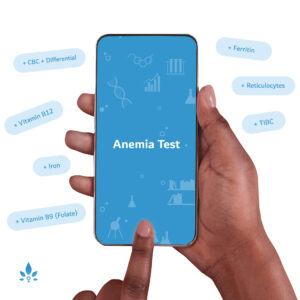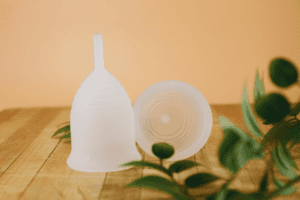What is Premenstrual Dysphoric Disorder?


As many as 75% of menstruating women experience Premenstrual Syndrome (PMS). Presenting with a range of physical and emotional symptoms, PMS can make life fairly miserable for a few days in the run up to a female’s period. Generally short-lived, the symptoms of PMS have usually passed by the time her period finishes and for most women they can carry on with their lives as normal. Some women, however, experience a severe form of PMS known as premenstrual dysphoric disorder (PMDD), and this condition can have a profound effect on their quality of life and ability to maintain social relationships.
What are the symptoms of PMDD and how is it diagnosed?
PMDD can present with a range of symptoms. These include:
- Mood swings
- Marked anger
- Irritability
- Feeling overwhelmed
- Reduced interest in activities that were previously enjoyed
- Fatigue
- Lack of energy
- Change in appetite
- Difficulty sleeping
- Bloating
In severe cases, PMDD can be accompanied by feelings of hopelessness and suicidal thoughts, which is why it is so important to ask for help and support if you notice a worsening of any PMS or PMDD symptoms.
To reach a diagnosis of PMDD at least five of the above symptoms need to be evident, seven to ten days before a female starts her period. The symptoms would usually be expected to disappear within a few days of the start of menstruation.
Whilst the symptoms are similar to those of PMS, the fact that they are more intense can make it difficult for those women affected to build relationships and even function normally at work.
Unfortunately, reaching a diagnosis of PMDD can take time. Often your doctor will want to rule out other endocrine (hormonal) and mood disorders first. These might include endometriosis, fibroids, menopause, depression and anxiety.
If you are worried about your symptoms you can take an at-home women’s health blood test to help you become more informed about your health.
What makes some women more susceptible to PMDD?
It is unclear why some women are more likely to suffer from severe PMS or PMDD. Those with a history of depression or postnatal depression seem to be at greater risk.
Women who do develop symptoms of PMDD may, for reasons as yet not well understood, be more sensitive to the normal hormonal changes that occur throughout the menstrual cycle. There is also a suggested association between PMDD and low serotonin levels. Serotonin has a crucial role in mood states and a deficiency is linked to depression and increased fatigue. Further work is required to understand the underlying causes or triggers of PMDD.
How can I manage my PMDD?
Managing PMDD is challenging because it is a disorder of two halves. It is a hormonal (endocrine) condition, in addition to a mental health problem. This means that an optimal solution would need to tackle both elements, which is probably going to require multiple treatment strategies and a multidisciplinary team of specialists.
Some of the most frequently used treatment strategies for PMDD include:
- Lifestyle changes. Exercise, a healthy diet and improved sleep quality can all result in improved energy and reduced stress.
- Counselling. Sessions with a therapist can help to combat some of the behavioural symptoms of PMDD.
- Oral contraceptives. Hormonal birth control, such as the pill, will usually stop your periods altogether. Unfortunately, once you stop taking the pill, it is likely that your PMS and PMDD symptoms will return. This treatment approach is not suitable for those who are hoping to conceive.
- Medications. In severe cases, your doctor may recommend a course of antidepressants. The Selective Serotonin Reuptake Inhibitors (SSRIs) fluoxetine, paroxetine and sertraline can be used to provide relief from some of the negative emotions you may be experiencing. Other medications might be prescribed to manage the physical symptoms; for example, diuretics help the body to shed excess fluid through the kidneys and are, thus, used to reduce bloating.
The main thing to remember if you are experiencing severe PMS or PMDD is that you do not have to tackle it by yourself. Our menstrual cycles are often considered private, or something that we should remain discreet about; too much talking is considered taboo. Many women feel that any monthly discomfort, pain or depression is an unavoidable consequence of being female. However, if you are starting to feel overwhelmed you should seek support from family, loved ones, or healthcare professionals. Having periods is a fact of life and not something to be ashamed of.
Nabta is reshaping women’s healthcare. We support women with their personal health journeys, from everyday wellbeing to the uniquely female experiences of fertility, pregnancy, and menopause.
Get in touch if you have any questions about this article or any aspect of women’s health. We’re here for you.
Sources:
- “PMS & PMDD: Causes, Symptoms, Treatments & Relief.” Cleveland Clinic, my.clevelandclinic.org/health/articles/9132-premenstrual-dysphoric-disorder-pmdd.
- “PMS (Premenstrual Syndrome).” NHS Choices, NHS, www.nhs.uk/conditions/pre-menstrual-syndrome/.
- “Premenstrual Dysphoric Disorder (PMDD).” Mind, www.mind.org.uk/information-support/types-of-mental-health-problems/premenstrual-dysphoric-disorder-pmdd/about-pmdd/.
- “Premenstrual Syndrome (PMS).” Mayo Clinic, Mayo Foundation for Medical Education and Research, 7 Feb. 2020, www.mayoclinic.org/diseases-conditions/premenstrual-syndrome/symptoms-causes/syc-20376780.













































